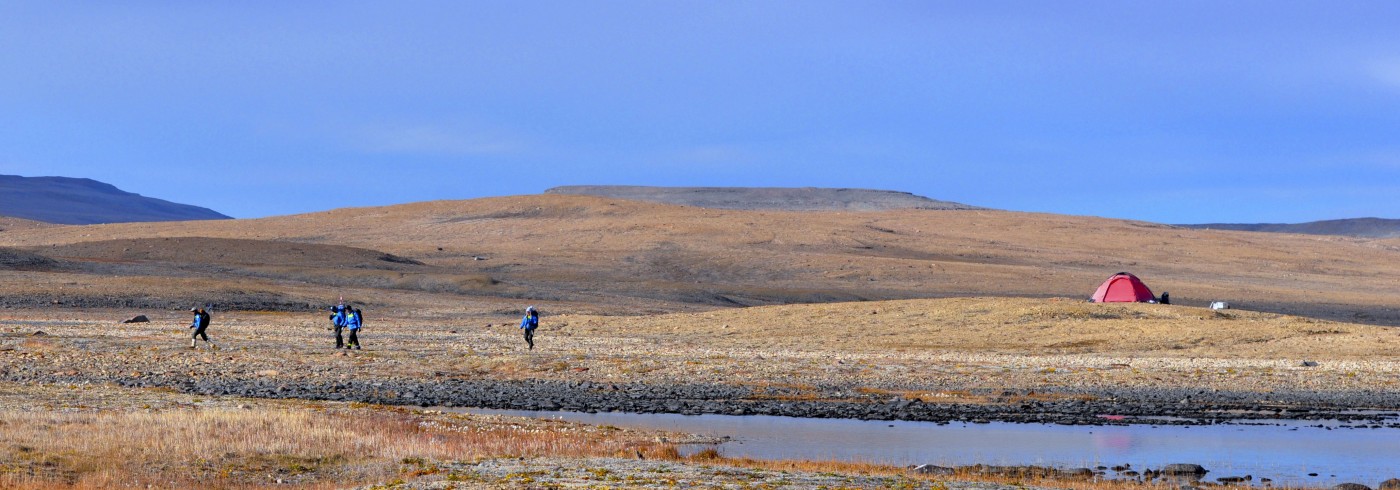
Master student Lucy Naud collecting her first sample. Lucy will use modern genetic techniques to look at how Arctic herbivores such as reindeer and hares are using different plant species. Photo: Fredrik Dalerum
The second field season of our project Arctic Islands has finally started. In this project we are broadly interested in how a northern expansion of warm adapted species of plants and animals will influence Arctic ecosystems.
Last year we went to one of the toughest environments on earth, the high Arctic of north Greenland and Ellesmere Island. At almost 82 degrees north, there was only sparse vegetation and very few species of birds and mammals.
This year, we are at the other extreme of the Arctic environment. We are working in the sub-arctic mountains of northern Scandinavia. This is where the Arctic meets the Boreal forest, quite literally.
Using Abisko Research Station as our logistic base, we will spend a month in these mountains to use exactly the same sample protocols as last year. That way we will be able to compare the two extremes of Arctic ecosystems, from the very northern ones which have to withstand very tough conditions, to these southern ones which are already being invaded by species from the neighbouring Boreal forest.

Nedim Curic, Lucy Naud and Lukas Scholz going through the sample protocols above lake Torneträsk in northern Sweden. Photo: Fredrik Dalerum
In our forthcoming field seasons, we hope to fill the gap between these two extremes. The first few days here in Abisko have been busy with organizing equipment, going through plant and bird identification guides, and going through our sample protocols. Tomorrow we will start our data collection. We are very excited about being here, and full of anticipation of what this field season in northern Sweden will bring.

